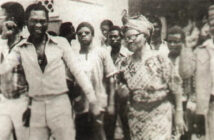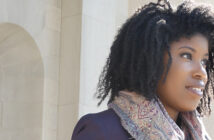Tens of thousands of Oromos gather at a lake about 50 kilometres from Addis Ababa in the early morning heat to celebrate Irreecha, an ancient religious and cultural festival that also serves as a platform for long-suppressed political and identity demands.
Children, women and adults of all ages converged on Lake Hora Arsadi, the yearly epicentre of this event, located in the locality of Bishoftu, on foot on Sunday. These people were wearing white tides of dresses, tunics or costumes, frequently adorned with the black-red-white colours of the Oromo flag.
The Oromo are the largest of Ethiopia’s roughly 80 peoples, making up about a third of the country’s 120 million inhabitants.
“Ireecha is an important traditional and cultural celebration for the Oromo people”, noted Sabkebar Gezu, 35, owner of a small business, “the Oromo come to the lake to give thanks to Wakaa, ancestral divinity source of life, “for the end of the rainy season and the arrival of spring.”
Nearly equal numbers of Oromo are Christians and Muslims. Many people refer to God as Waaqa, and some people still engage in Waaqueffannaa, or Waaqa worship.
The Waaqeffannaa has accompanied the emergence of Oromo identity claims for the past three decades. The Oromo people’s culture and traditions have long been suppressed in modern Ethiopia. This oppression came to an end in the 19th century when the Christian Emperors of the Solomonid dynasty, who claimed to be the descendants of King Solomon and the Queen of Sheba, united Ethiopia.
Emperor Menelik, who was crowned in 1889, and his successors increasingly forced the Amharic language and culture on Ethiopia, denying the Oromo their cultural practises. The Oromo people are depicted as “barbarians” in the official history of the time.
Their cultural aspirations were generally ignored by the military-Marxist Derg administration, which deposed Emperor Haile Selassie in 1974.
After being long outlawed, the celebration of Ireecha was allowed to resume at the end of the 1990s after the new federalist government that replaced the Derg guaranteed, through the 1994 Constitution, the right of the nationalities that make up Ethiopia to “promote their culture” while mainly limiting freedom of expression.
Tola Micha, 52, remembers the return of the first Ireecha festivities following the fall of the Derg in 1991. She is wearing a white hat and suit with an Oromo-colored tie as she speaks. She says, “At the beginning, there were only a few hundred of us, now we are present in numbers, it makes me proud.” “Irreecha is our fist, it represents our strength,” he affirms.
Fantam Bogale, a 28-year-old trader from Wolliso, 100 km away, emphasises that “we inherited this culture from our ancestors and we must keep it alive” because the Oromo people and culture “have been marginalised for many years.”
According to Sabkeba Gezu, “previous generations paid a heavy price so that our generation could come here to celebrate” Irreecha.
Even while some attempt to “divert its message,” according to Kiya Tadessa, a 24-year-old employee of an NGO, “Ireecha is a cultural event, which has nothing” to do with politics.
Political messages erupted rapidly from one group: “Many Oromo are imprisoned! We are disadvantaged! Our legal rights will be upheld! Although we respect the government, it does not imply that we are powerless.
The slogans also call for an end to the violence that is wreaking havoc on their home state of Oromia, where banditry and anti-government rebellion have taken control of broad areas and there have been several ethnic atrocities.
One of them has been in charge of Ethiopia for the first time since Abiy Ahmed became office in 2018—Oromo through his father. However, his standing has declined all the way to Oromia, and many Oromos are struggling to conceal their dissatisfaction. We avoid discussing politics in Ethiopia in public, thus we often communicate through careful periphrasing.
According to Mr. Sabkeba, “many Oromo people problems—not just cultural ones—remain unaddressed.
All of this was not handed to us for free; many people sacrificed their lives, and even now, many issues are not taken into account. Ababa Korsa, a 30-year-old accountant, said, “However, it is a little better, we can come here and freely enjoy our culture.



